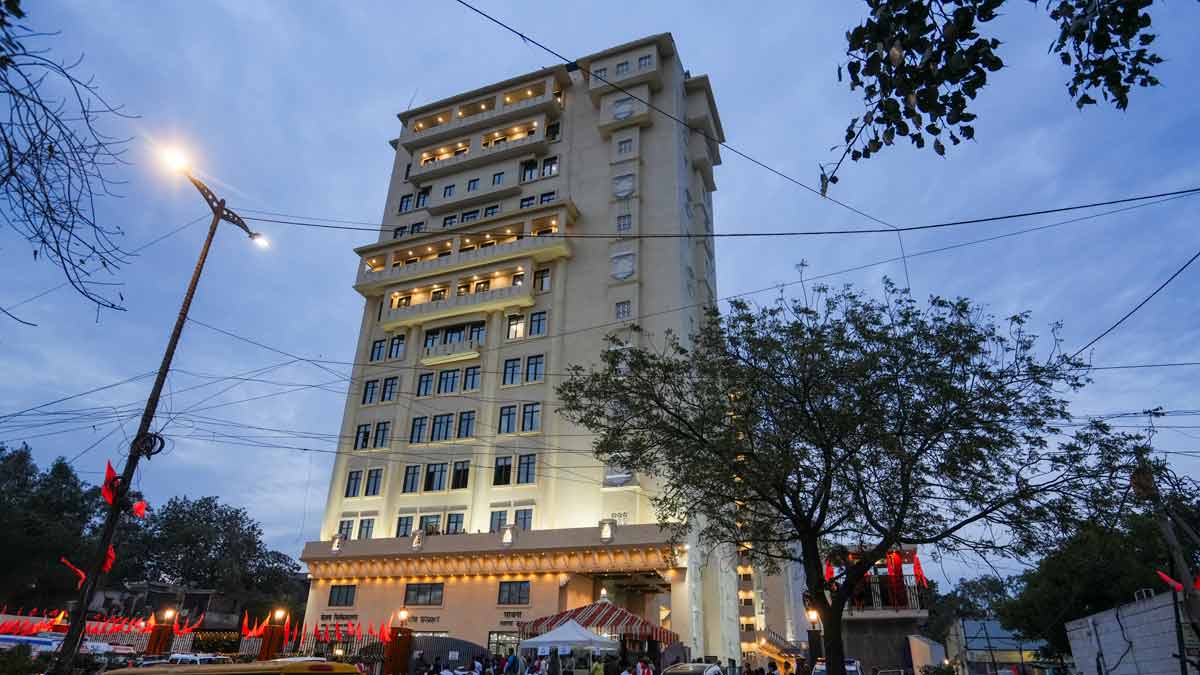3-day RSS meet to chalk out programmes for its 100-year celebration; focus on social outreach
 Newly inaugurated Rashtriya Swayamsevak Sangh's (RSS) office Keshava Kunj, in New Delhi | PTI
Newly inaugurated Rashtriya Swayamsevak Sangh's (RSS) office Keshava Kunj, in New Delhi | PTI
With focus on its social outreach through nationwide social harmony meets, massive house-to-house engagement and key dialogues by its chief in four metros, the Rashtriya Swayamsevak Sangh (RSS) will begin 100-year celebrations from October 2, 2025.
To chalk out the programme, the RSS will hold its three-day All-India Prant Pracharak meeting at its newly constructed national headquarters in Delhi, Keshav Kunj, from July 4 to 6.
The meeting will be chaired by RSS chief Mohan Bhagwat and will see participation from 233 senior functionaries, including 46 prant pracharaks, sah prant pracharaks, and representatives of 32 RSS-inspired organisations.
Addressing a press briefing ahead of the meeting, RSS all India publicity in-charge, Sunil Ambekar, said the key focus of the meeting will be the planning and execution of the Sangh's upcoming centenary year celebrations, which will begin on October 2, 2025, with Vijayadashami programmes in Nagpur.
"This is not a decision-making meeting but a forum to review and discuss the progress of organisational work across various prants, and share experiences,” Ambekar said. “Key discussions will be held on the structure of the organisation at the prant and jilla (district) level, expansion of work, and on how the RSS engages with society on a daily basis.”
The meeting will include sessions on ideological discussions (bodhik karyakram), physical training activities, and reviews of suggestions and feedback received from the field.
Ambekar said significant portion of the meeting will be devoted to discussions around RSS training modules such as Sangh Shiksha Varg and Karyakary Varg-1—the latter a 20-day programme. A national-level Karyakarta Varg is also scheduled to be held in Nagpur.
“These training vargs are held only once in a lifetime for a volunteer. We’ve already conducted 100 such camps this year—75 for those below 40 years of age and 25 for the 40–60 age group,” Ambekar said, adding that new changes introduced two years ago have strengthened the vyakti nirman (individual development) process within the Sangh.
He also noted that 28,570 individuals have registered online to join RSS through the ‘Join RSS’ platform between March and now, showing increased interest from the youth.
As part of the centenary celebrations, RSS has proposed a society-wide initiative called Panch Parivartan (Five Transformations). The five tenets aim to foster: social harmony across communities; environment-friendly family lifestyles; pride in self-awareness; strengthening of values and affection within families; greater awareness and fulfilment of civic duties.
“These programmes are meant to encourage wide participation from all sections of society. The Sangh is a social organisation—not a political one. We engage with society by keeping people’s real issues in mind,” Ambekar emphasised.
Beginning after November, a nationwide Grah Sampark Abhiyan (Home Contact Campaign) will see volunteers visit households with Sangh literature and initiate discussions on national and social issues.
The Sangh leader said they will also host Samajik Sadbhav Baithaks (social harmony meetings) at district level, where representatives from various communities will gather to promote unity and discuss ways to eliminate social evils.
Prominent citizens will be invited to participate in national-level seminars held throughout the centenary year. These will address themes such as Hindutva, national interest, and India’s future trajectory. Special youth-focused programmes will also be conducted.
The key highlighted which is expected to generate interest among the intelligentsia would be Bhagwat's outreach similar to one he did in Delhi in 2018. He had then addressed key points of Sangh's ideology and some of the misgivings about the nature of their work.
This time four major dialogues with the Sarsanghchalak will be organised in Delhi, Mumbai, Bengaluru, and Kolkata. This aims to bring together thought leaders and opinion-makers from diverse fields.
India